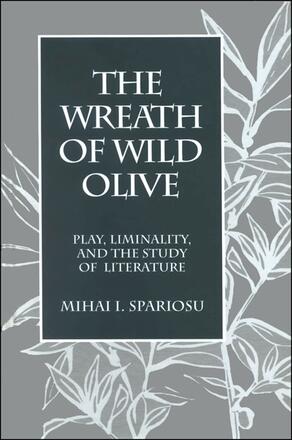
The Wreath of Wild Olive
Play, Liminality, and the Study of Literature
Alternative formats available from:
Examines the concept of play in Western thought, with special emphasis on the relationship between aesthetics and ethics, and envisions literary discourse as contributing to an alternative mentality based on peace rather than power.
Description
Mihai Spariosu's book strikingly intervenes in the debate raging among the various oppositional and hegemonic discourses by advancing a new philosophy that transcends the currently prevailing agonistic mentality. He develops a ludic-irenic view intended to exceed both a voluntaristic and rationalist mode of thought, thereby convincingly opposing the all-pervading mentality of power in a world marked by difference, scapegoating, and strife between various social, ethnic, racial, and sexual factions. The ludic-irenic stance, basically derived from the playfulness of literature, produces alternative mentalities and alternative worlds which promote a responsive understanding of what there is, thus bringing to bear a healing influence within the human community, in which power and difference will cease to be ultimates. What Spariosu puts forward and demonstrates by means of a stupendous erudition is no less than a total reorientation of cultural criticism that is bound to have its impact on the course cultural studies will take.
Reviews
"It is one of the outstanding achievements of the book to explore the concept of liminality—a term introduced by Victor Turner into the critical discussion—as a threshold and passageway from one historical world to another. Liminality, as Spariosu unfolds it, may well be the key term of the coming decade, replacing the current prominence of 'otherness'." — Wolfgang Iser, University of California, Irvine
"The Wreath of Wild Olive is a work demonstrating enormous erudition and uncanny critical discrimination and jouissance. It is as remarkable for the pleasure it delivers as for the light it sheds on a broad range of key texts." — Henry Sussman, State University of New York, Buffalo
"Spariosu's book is one of the most compelling accounts of the nature of play that I have ever encountered. Its breadth and depth of knowledge are remarkable, its understanding of the importance of play acute. I know of no other book that probes the notion of play from as many different angles and that manages to provoke as many different questions on the topic as this one." — James S. Hans, Wake Forest University
"Mihai Spariosu is a prodigiously learned comparativist, a bold thinker of broad, humane sympathies, and a writer of great skill and refinement. His new book The Wreath of Wild Olive undertakes to rethink literature as a field not—as the prevailing cant has it—of power relations and combative differences but (mirabile dictu!) of peace and play: to the dogma of theory as eristics, Spariosu has had the courage to propose an irenics of literature. The Wreath of Wild Olive has salvational force." — Stanley Corngold, Princeton University